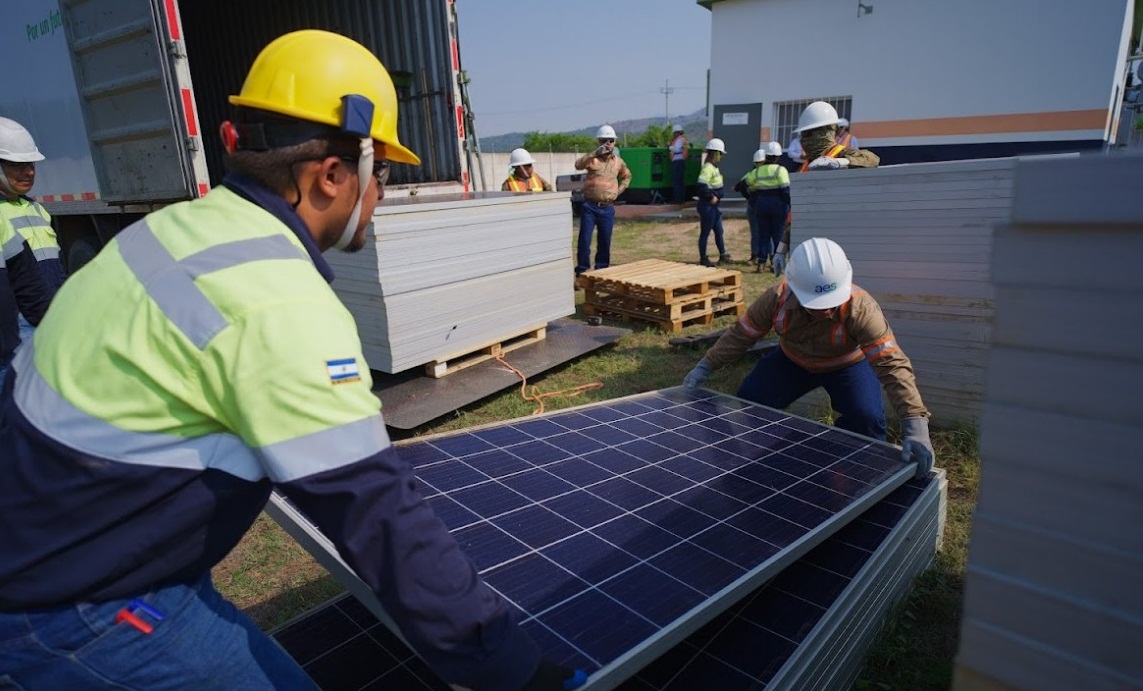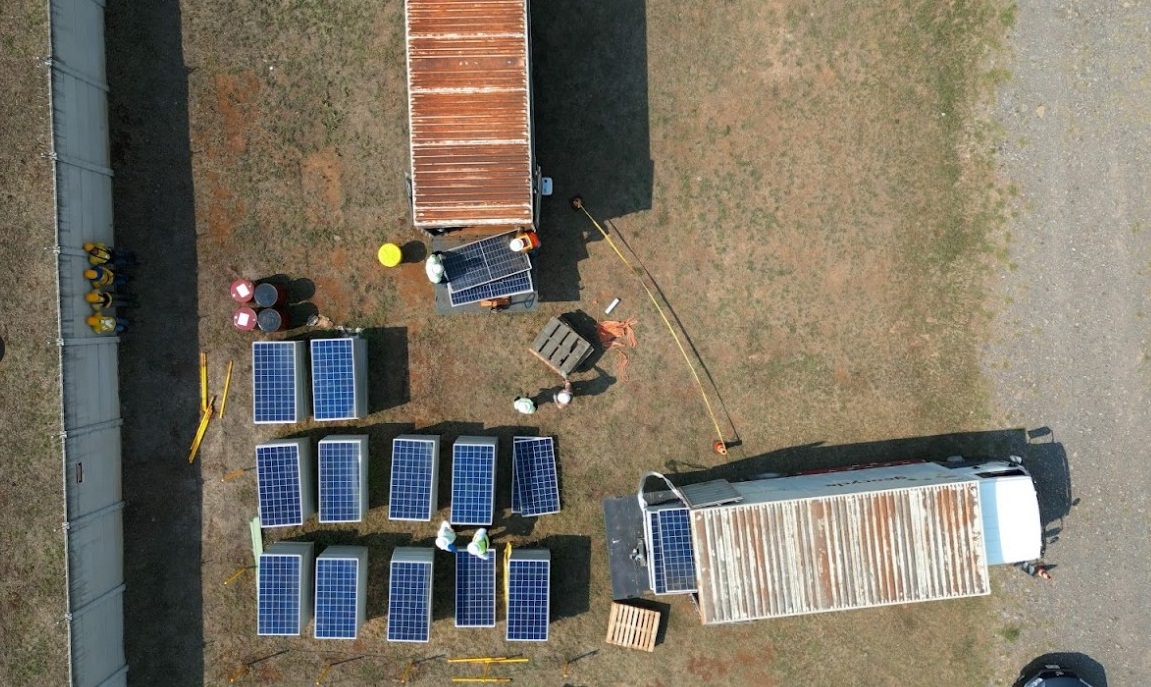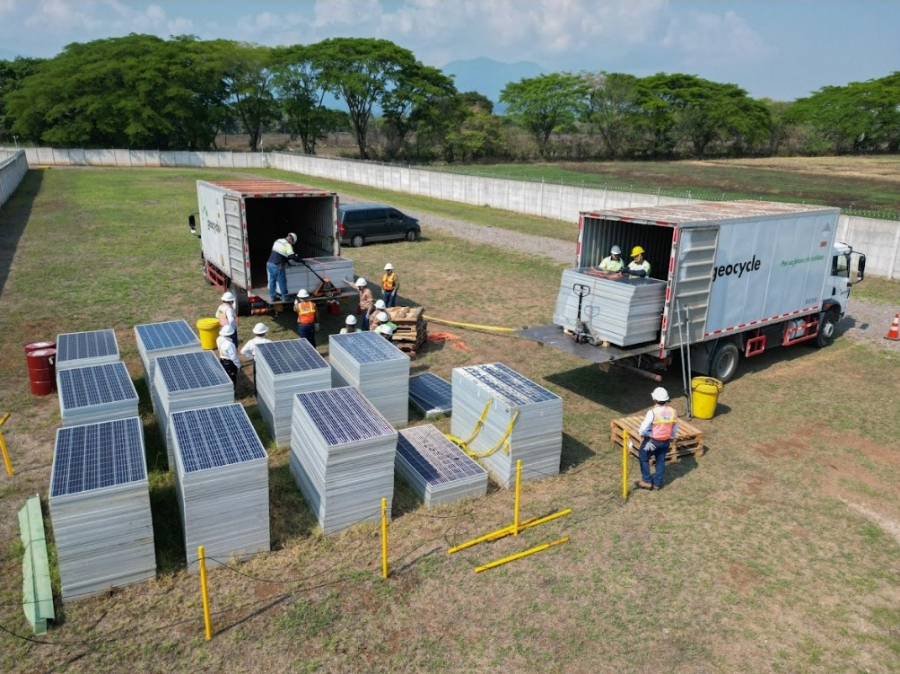This allows a better use of the natural resources extracted and reduces damage to the environment.
With the implementation of this environmentally innovative initiative, AES applies circularity in the value chain of its solar plants, from the generation of renewable energy to the proper management of waste.

John Davenport, director of the División Generación of AES El Salvador, said: "We are pioneers in this type of initiatives that contribute to accelerate the future of energy. We are committed to the environment through the generation of renewable energy and the proper management of waste at our solar plants".
The proper management of solar panels by Geocycle is possible thanks to the application of co-processing, a technology recognized worldwide in energy-intensive industries such as cement, which consists of the transformation of materials in the kiln at temperatures above 1,500 degrees Celsius, with a closed and strict emissions control, which also does not generate new waste, since the ashes are incorporated into the cement production process.

Geocycle emphasized that with the correct final disposal of the solar panels, AES is taking a step towards the future of energy. "We are very proud to be part of this alliance, which highlights the vision of both companies in building a better future. We congratulate AES for this great step that brings us closer to making a contribution to achieving a waste-free future", said Sonia Martinez, Commercial Head of Geocycle El Salvador.
With waste being one of the major causes of environmental pollution, by giving a second life to industrial waste, AES together with Geocycle contribute to the sustainable development of the country and promote a cleaner, greener and carbon-free future for future generations.
The circular economy is present in several Sustainable Development Goals (SDGs), such as Goal 7 (affordable and clean energy), Goal 11 (sustainable cities), Goal 12 (responsible production and consumption) and Goal 13 (climate action). Likewise, joining business efforts also has an impact on Goal 17 (promoting partnerships to achieve the goals).
Translated by: A.M
 English
English  Español
Español 

